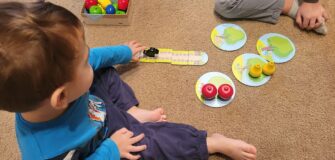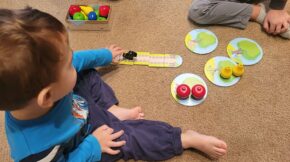Baby Food Guide: How Safe is Rice Cereal for Babies?
Share

Attention, to-be mothers! For years, parents and pediatricians have hailed rice cereal for babies as an excellent first food.
Its perfect consistency is ideal for little ones who are just beginning to explore solid foods, helping them learn to mouth and swallow with ease.
Moreover, it’s enriched with essential iron, gentle on tiny tummies, and has a low risk of triggering allergic reactions.
Now, you may be wondering when the best time is to introduce rice cereal to your precious bundle of joy. Well, the answers you receive might vary.
Some suggest starting at around 6 months, while others propose introducing it as early as 2 or 3 months.
Safety is of utmost importance, especially when it comes to introducing new foods to your little one.
Discover more about rice cereal for babies, as well as other nutritious infant cereals you might consider adding to their diet.
What is Rice Cereal for Babies?
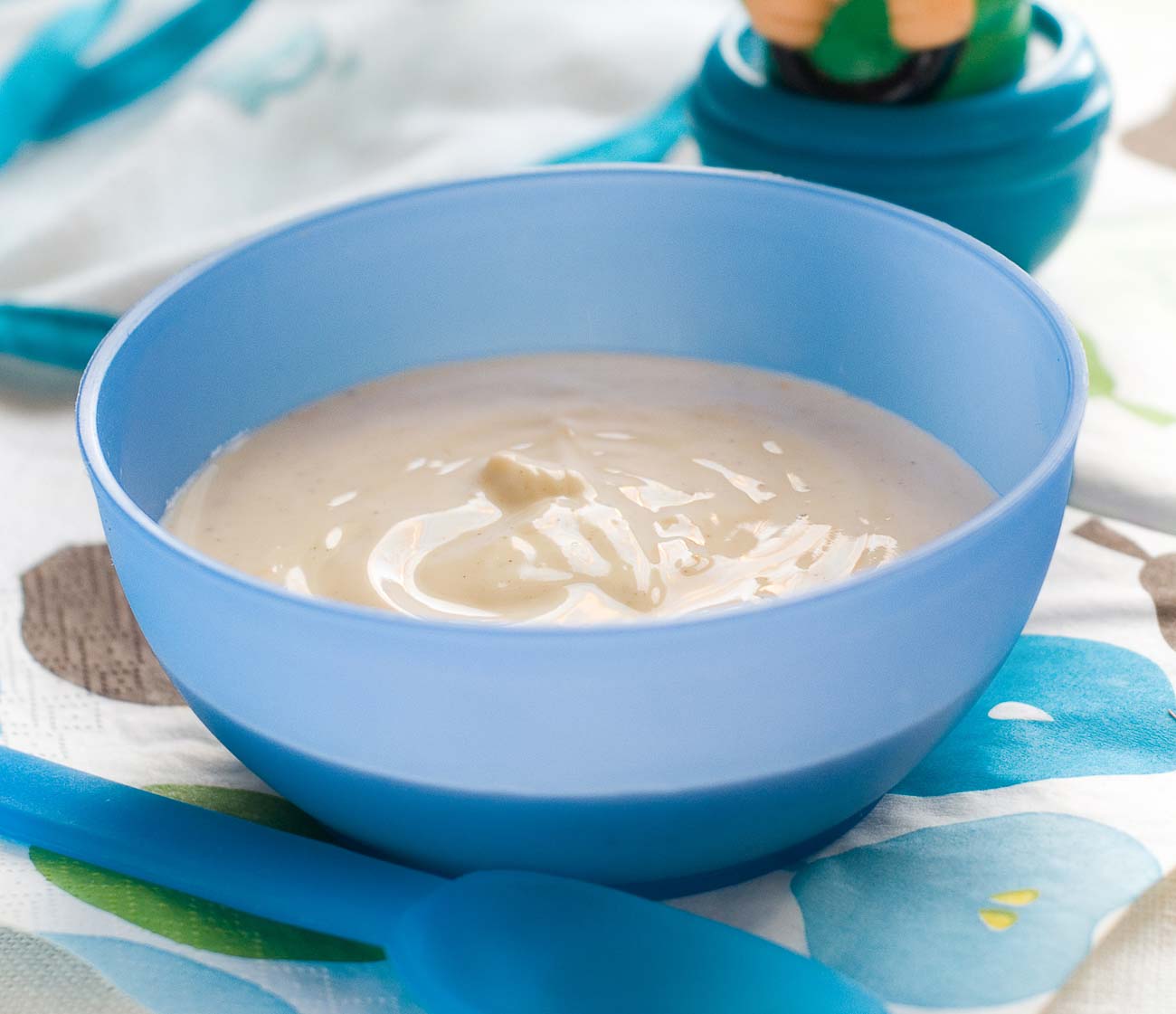
When it comes to introducing solids to your precious little one, rice cereal has long been a go-to choice. This traditional first food for babies comes in a dry powdered form, and you can easily mix it with liquid to create a nourishing oatmeal-like consistency. Alternatively, you can find pre-mixed versions for added convenience.
Rice cereal for babies is one of the highly recommended single-grain cereals for infants as they venture into the world of solid foods. Not only does it offer a gentle transition, but it can also be added to baby formulas, providing extra substance and density to support your baby’s developing digestive system as they need more energy from their diet.
Pediatricians often suggest starting around four to 6 months of age when incorporating rice cereal into your baby’s diet. This ensures that your little one is developmentally ready for this exciting culinary journey.
What are the Benefits of Rice Cereal for Babies?
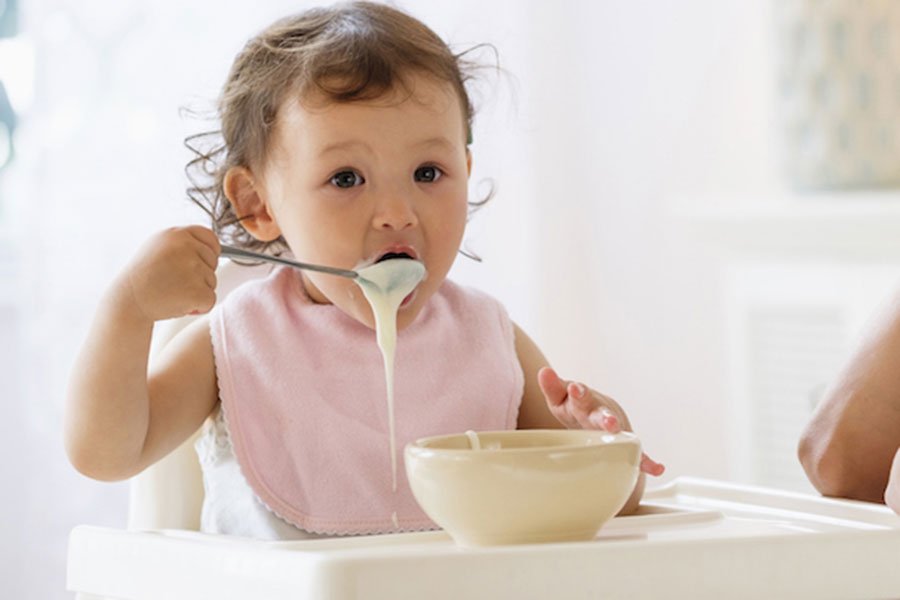
When it comes to introducing your little one to solids, single-grain cereals like rice cereal are a perfect choice. The best part is that you can easily adjust the texture to suit your baby’s needs, making it easy for them to enjoy.
One significant advantage of rice cereal for babies over wheat cereals is its lack of common food allergens, such as wheat and gluten. Since gluten can trigger allergies in some individuals, it’s wise to start with foods that are less likely to cause any allergic response or intolerance when introducing solids to your baby.
Preparing baby rice cereal is a breeze. Simply mix it with breastmilk or formula to achieve a smooth, pudding-like consistency – the perfect first food for your little one. The texture of rice cereal poses minimal risks for choking, as it forms few lumps when prepared properly. This allows babies to mouth the cereal comfortably and swallow a spoonful with ease.
Moreover, rice cereal is an excellent source of iron, which is crucial for your baby’s brain development. Studies indicate that iron-fortified rice cereal and other fortified grain-based cereals help prevent iron deficiency and anemia in babies.
Not only that, but rice cereal may also prove helpful in soothing tummy discomfort. It’s often a preferred choice for babies experiencing diarrhea.
How Do You Know the Baby is Ready to Be Fed Rice Cereal?
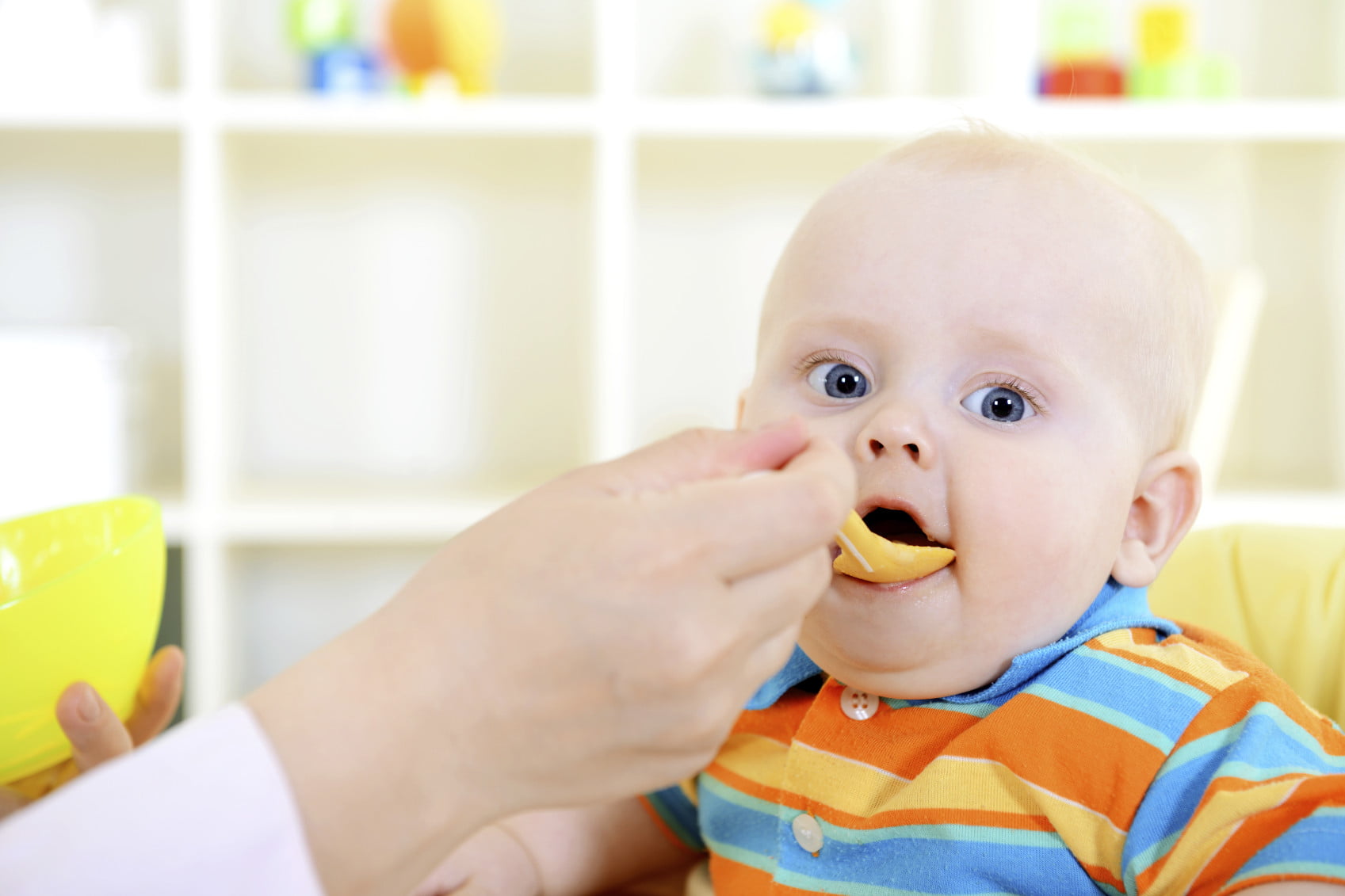
Sign 1: Every baby is unique, so it’s essential to pay attention to signs indicating your little one is truly ready to start eating rice cereal before introducing it to them. Hold off on introducing solid food until your baby gains control of their neck and head. This way, they can comfortably sit upright in a highchair while eating.
Sign 2: The most crucial factor is your baby’s oral skills. Avoid giving rice cereal to babies until they can move solid food from the front of their mouth to the back. Typically, this skill develops around 4 months of age. Before that, their tongue reflexively pushes out any food that enters their mouth.
Sign 3: Another clear indication that your baby may be ready for solids is when they show an interest in your food. If they watch you eat with curiosity and attempt to grab or lean towards food with an open mouth (prepare your camera!), it might be a good time to start introducing solid foods.
Sign 4: As a caring parent, trust your instincts and your baby’s cues. Observing these signs will help ensure a smoother and more enjoyable transition to solid foods. Remember, every baby’s developmental journey is special, and we want to support you in making this experience as authentic and genuine as possible for you and your little one.
How to Introduce Rice Cereal to Babies?
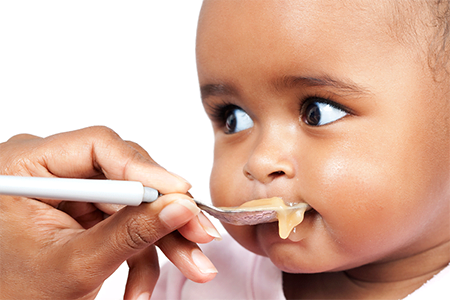
Tip 1: As your baby reaches the stage where solid foods become part of their diet, some little ones might find this transition a bit challenging after months of solely relying on breast milk or formula. To introduce rice cereal for babies, you can mix 1 to 2 tablespoons of iron-fortified rice cereal with 4 to 6 tablespoons of formula, breast milk, or water. While some people opt for mixing rice cereal with fruit juice, it’s important to note that this isn’t recommended. Fruit juice lacks significant health benefits and can be very high in sugar.
Tip 2: Spoon-feeding your baby iron-fortified rice cereal is crucial to ensure they get enough iron, especially as they start on solid foods. However, it might take a few feedings for your baby to get the hang of this new way of eating. You can start the feeding session with nursing or bottle-feeding and then finish it off with rice cereal.
Tip 3: In the past, doctors used to recommend rice cereal as the “first food” for babies. However, we now know that age-appropriate foods can be introduced in any order. It’s essential not to rely solely on rice cereal for an extended period due to concerns about arsenic exposure, as highlighted by the Food and Drug Administration.
Tip 4: Feel free to introduce other jarred or pureed foods like fruits and vegetables either before or after rice cereal. Don’t hesitate to explore other iron-fortified single-grain cereals apart from rice as well. Variety is essential, even for your little one!
Tip 5: When introducing new solid foods, take them one at a time. This way, you can detect any potential food allergies or sensitivities early on. For instance, after introducing peas for the first time, wait for 3 to 5 days before introducing carrots or any other new food to monitor their reactions carefully.
What are the Alternatives Other than Rice Cereal for Babies?
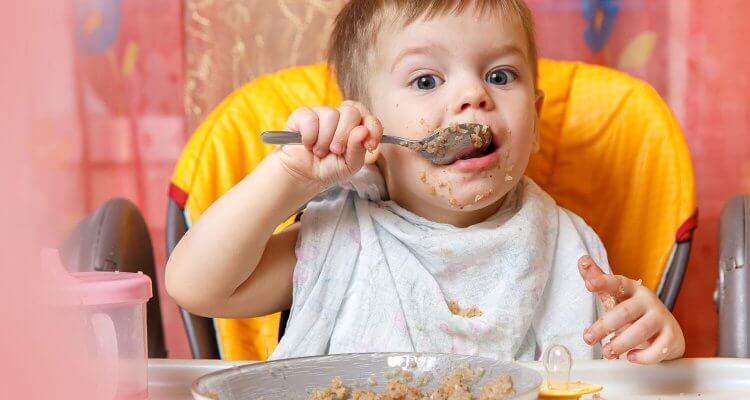
When it comes to rice cereal for babies, while it has been a traditional choice in the past, it’s important to know that rice cereal is not a necessary food for infants. In fact, the American Academy of Pediatrics (AAP) now states that rice cereal doesn’t have to be the first food you introduce to your little one. There are plenty of alternatives available in stores that offer similar or even better nutritional value than rice cereal.
A significant concern is the potential exposure to arsenic, especially for babies, as their growing bodies are more vulnerable. Many parents prefer exploring cereal options derived from different grains to minimize any potential harmful effects.
Here are some fantastic rice cereal alternatives you can consider:
Each of these options provides a diverse range of nutrients and flavors that can add excitement and nourishment to your baby’s diet. As a caring parent, you want what’s best for your child, and being informed about these alternatives empowers you to make choices that resonate with your values and your baby’s well-being.
How to Feed Rice Cereal for Babies in a Bottle?
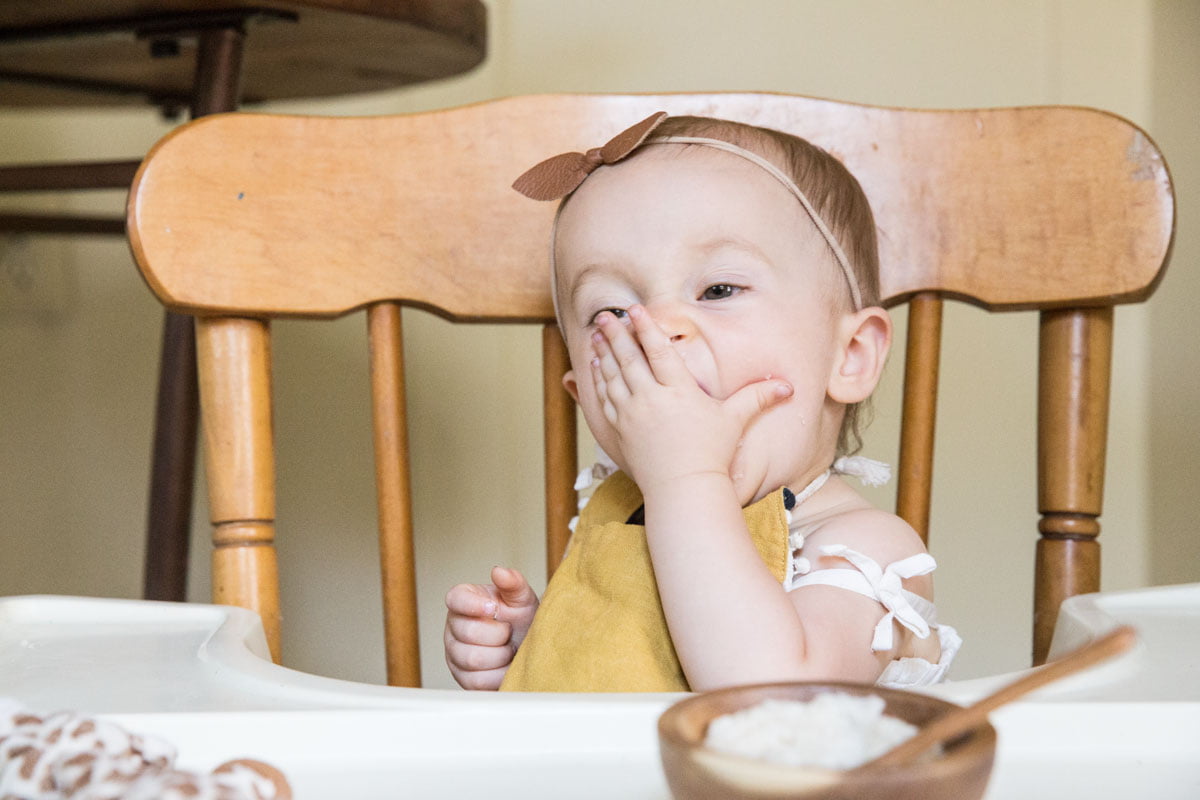
Let’s have an honest talk about feeding your baby cereal in a bottle. While you might have come across this practice, it’s essential to avoid doing so unless your baby’s healthcare provider specifically recommends it.
The reason is that feeding your baby through a bottle can lead to unnecessary calorie intake, and she may end up consuming more food than she actually needs.
While rice cereal may have been a common choice in the past, experts now suggest exploring other infant cereals and foods that could be safer for your baby.
If you ever find yourself unsure about which infant cereal to introduce or need advice on expanding your baby’s menu, don’t hesitate to reach out to your baby’s healthcare provider for guidance.
As your baby begins their exciting journey into solid foods, it’s important to remember that you’re doing an incredible job as a parent, and all those diaper changes deserve lots of rewards! Your love and care are truly making a difference in your baby’s life.
Conclusion
Summarizing the whole article on rice cereal for babies, there are some major factors you need to keep in mind as a parent-to-be or as a new parent. It’s essential not to feed your baby any solid food, including rice cereal, before they reach six months of age.
During the first six months of life, it’s best to exclusively breastfeed or provide formula (or a combination of both) as they are more nutritious for your baby compared to solid food alternatives.
The first year of life is critical for brain development, and your baby’s diet plays a significant role in this aspect. When incorporating rice cereal, it’s essential to follow the advice of the American Academy of Pediatrics: avoid giving rice cereal every day and refrain from making it the sole food in a meal.
As you diversify your baby’s diet, consider adding other grain cereals like barley, quinoa, and oats.
Remember, ultimately, your genuine concern and appetite to feed your baby the right food will help them as they grow and develop their magical minds.









